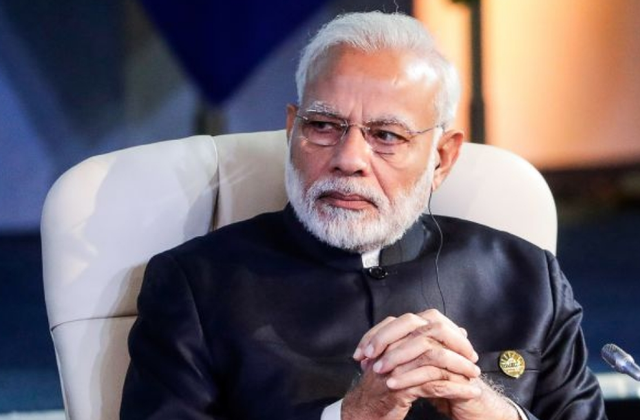Prime Minister Narendra Modi and Congress leaders commemorate the 33rd death anniversary of former Prime Minister Rajiv Gandhi with heartfelt tributes
Prime Minister Narendra Modi paid tribute to former Prime Minister Rajiv Gandhi on his 33rd death anniversary today. The Prime Minister posted on X, “On his death anniversary, my tributes to our former PM Shri Rajiv Gandhi Ji.” The solemn remembrance highlighted Rajiv Gandhi’s significant contributions to India and his lasting legacy.
In addition to PM Modi, several prominent Congress leaders, including Congress President Mallikarjun Kharge, Congress Parliamentary Party Chairperson Sonia Gandhi, and party MP Rahul Gandhi, paid their respects at Veer Bhumi in Delhi. The gathering at Veer Bhumi underscored the respect and reverence Rajiv Gandhi continues to command across the political spectrum.
Embed from Getty ImagesOther senior Congress leaders like P Chidambaram and Sachin Pilot also honoured the former Prime Minister in the national capital, reflecting on his impact on Indian politics and his vision for the country. These leaders emphasized the enduring influence of Rajiv Gandhi’s policies and his efforts to modernize India.
Rajiv Gandhi took over the leadership of the Congress Party in 1984 following the assassination of his mother, then-Prime Minister Indira Gandhi. At the age of 40, he became India’s youngest Prime Minister when he assumed office in October 1984. His tenure marked significant strides in technology and telecommunications, setting the stage for India’s future advancements in these fields.
Serving as Prime Minister until December 2, 1989, Rajiv Gandhi left a lasting impact on the nation’s political landscape. Born on August 20, 1944, his life was tragically cut short when he was assassinated by a Liberation Tigers of Tamil Eelam (LTTE) suicide bomber during an election rally in Sriperumbudur, Tamil Nadu, on May 21, 1991. His assassination shocked the nation and the world, highlighting the volatile political climate of the time.
The commemoration of Rajiv Gandhi’s death anniversary serves as a reminder of his contributions to India’s development and his vision for the nation. His leadership during a critical period in India’s history is remembered fondly by many, and his legacy continues to inspire future generations.
Analysis :
Rajiv Gandhi’s legacy can be examined through multiple lenses, each highlighting different aspects of his impact on India and its development. Politically, Rajiv Gandhi’s ascent to the Prime Ministership marked a significant shift in Indian politics. His tenure saw the introduction of progressive policies aimed at modernizing India, particularly in the realms of technology and telecommunications. His vision for a digitally connected India laid the groundwork for the country’s current technological advancements.
Sociologically, Rajiv Gandhi’s leadership during a turbulent period in India’s history demonstrated resilience and a forward-thinking approach. His efforts to bring about social reforms and his focus on education and technology resonated with a younger generation, eager for change and modernization. His tragic assassination also serves as a stark reminder of the challenges and dangers faced by political leaders in volatile regions.
Economically, Rajiv Gandhi’s policies had a lasting impact on India’s growth trajectory. His push for technological advancement and modernization helped open up the Indian economy to global markets. His emphasis on computerization and technology laid the foundation for India’s emergence as a global IT powerhouse. The economic reforms initiated during his tenure continued to influence subsequent administrations, driving India’s economic liberalization.
From a gender perspective, Rajiv Gandhi’s tenure saw significant strides in women’s empowerment. His policies aimed at increasing women’s participation in politics and the workforce helped pave the way for future reforms focused on gender equality. His support for the Panchayati Raj system, which mandated a certain percentage of seats for women, marked a crucial step towards ensuring women’s representation in local governance.
The commemoration of Rajiv Gandhi’s death anniversary also highlights the ongoing influence of his political legacy on current leaders and policymakers. Prime Minister Modi’s tribute signifies a recognition of Gandhi’s contributions to India, transcending political affiliations. This bipartisan respect underscores the enduring nature of Rajiv Gandhi’s impact on Indian politics and society.
The theoretical perspectives on media and political legacy might suggest that the remembrance of Rajiv Gandhi serves as a narrative of national unity and progress. His contributions continue to be celebrated, symbolizing the ideals of a forward-looking and technologically advanced India. This commemoration fosters a sense of national pride and collective memory, reinforcing the significance of visionary leadership in shaping the nation’s future.
In conclusion, Rajiv Gandhi’s legacy remains a cornerstone of India’s modern history. His contributions to technology, social reform, and economic modernization continue to resonate today. As leaders and citizens remember his impact, Rajiv Gandhi’s vision for a progressive and technologically advanced India remains a guiding force for future generations.
